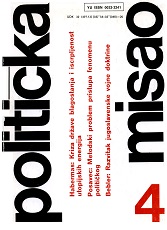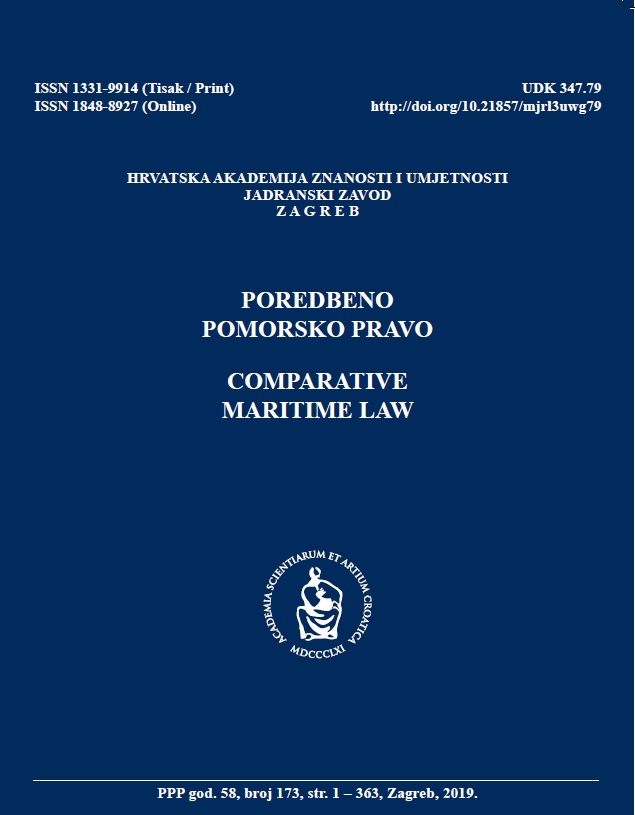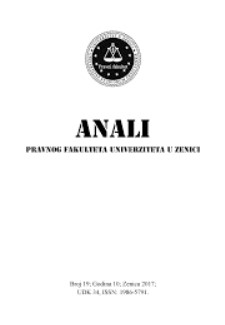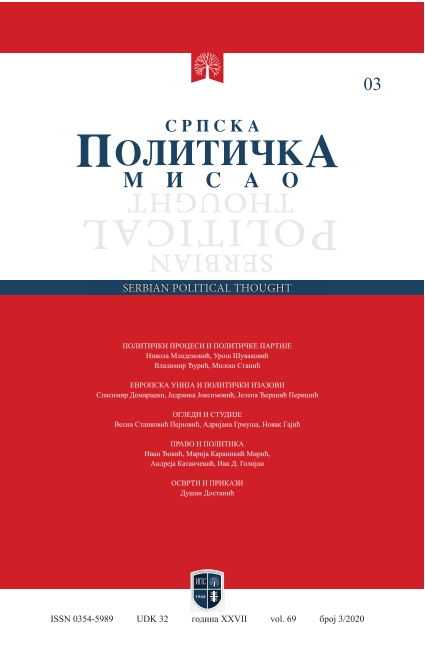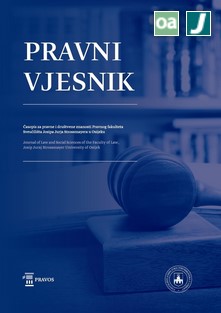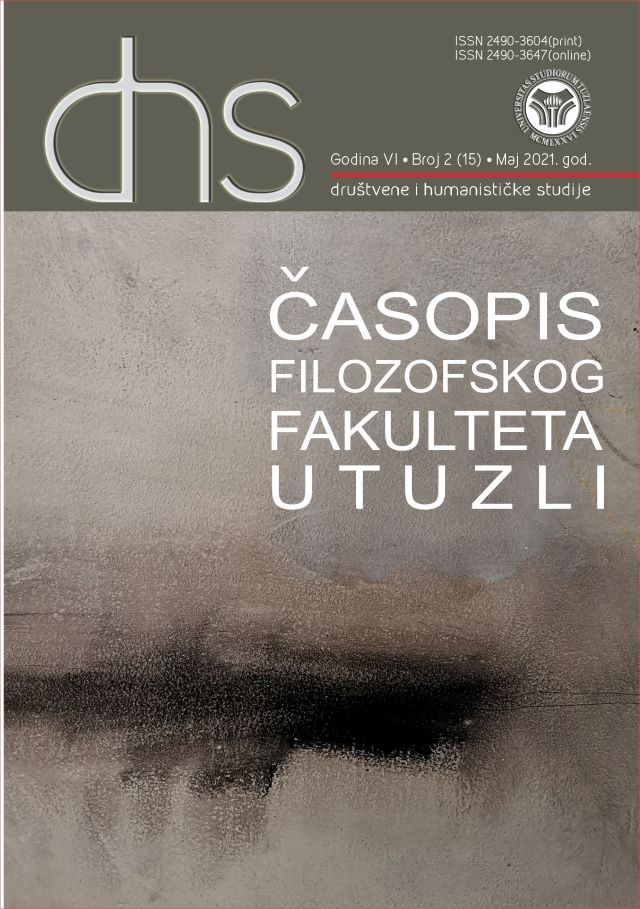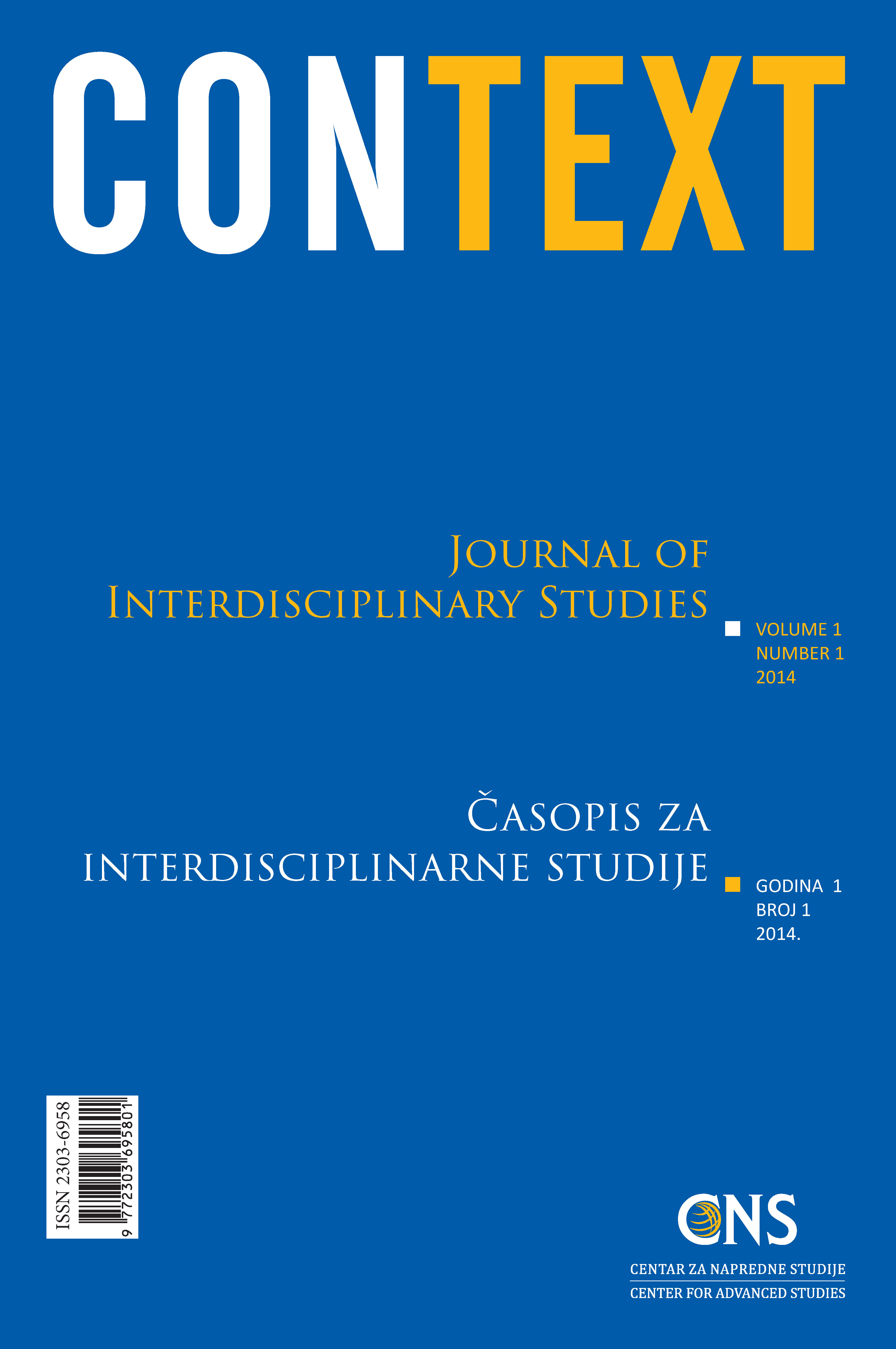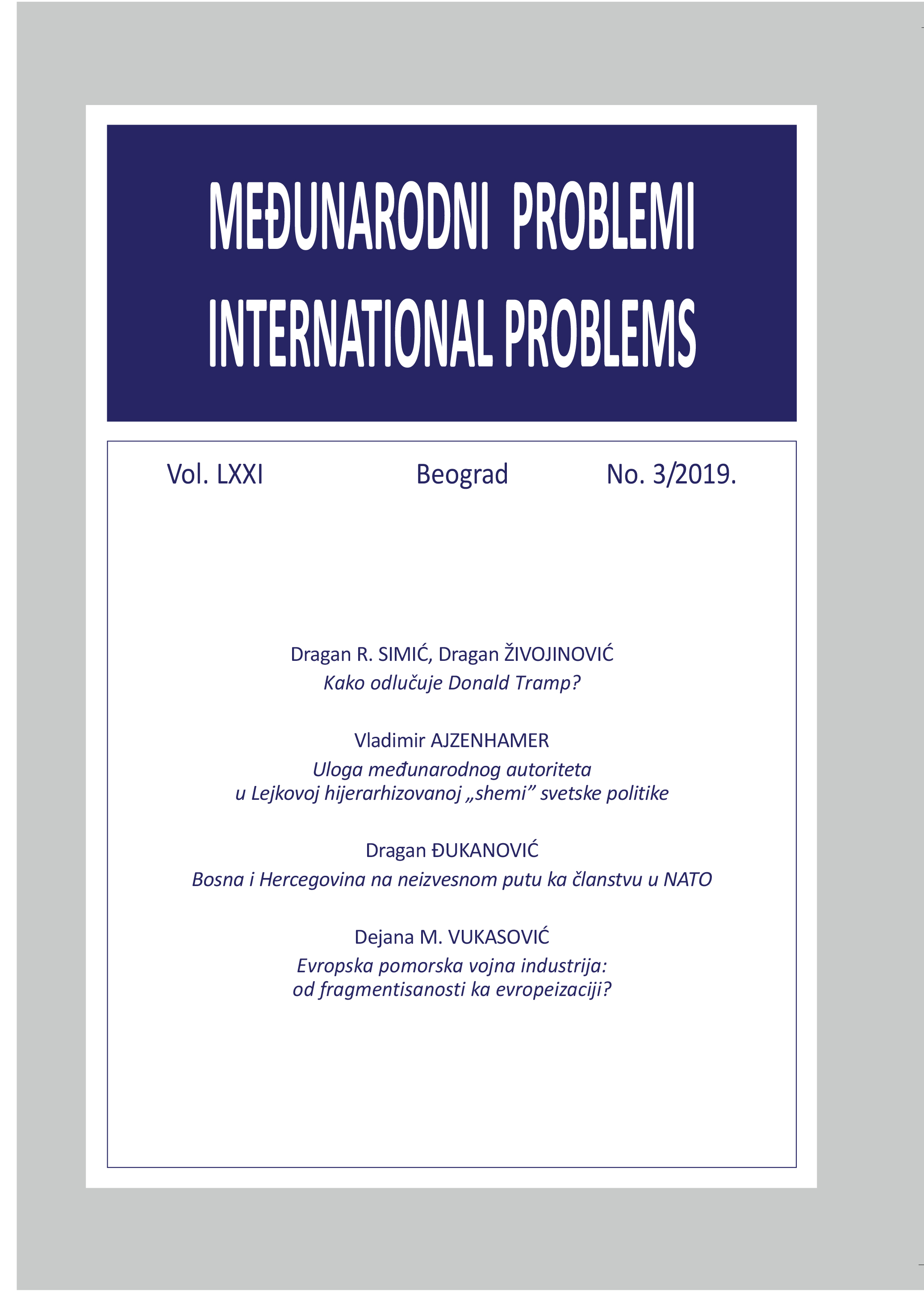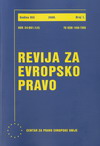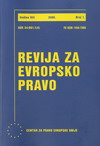Evropski bezbednosni i odbrambeni identitet i migrantska kriza
Author(s): Slobodan Zečević,Gordana Gasmi / Language(s): Serbian
/ Issue: 2/2016
Keywords: The European Union; security and defense; migrant crisis; EU migration policy;
European Security and Defence Identity, ie the capacity of the European Union (EU) to address the urgent migrant crisis is analyzed in the light of the legal aspects of the mechanisms envisaged by the founding treaties, especially the valid EU Treaty of Lisbon (2009). At the beginning of the XXI century, the EU has been hit by several successive crises. Those are the world financial crisis of 2007, whose source was the US financial market, the debt crisis of Greece, which lasts from 2008 and which has escalated in the summer of 2015, and in particular the case of the refugees’ crisis. The mentioned events have shown that incomplete sovereignty of the EU, caused by a slowdown in building a European federal state prevents it from having adequate responses to emergencies. Because of its inter-governmental and confederal features, the EU cannot act in a fast, unified and adequate way in migrant crisis, as well as in other challenges in a globalized world. More and more there are rumours and calls for the formal, ie the official abolition of the Schengen Agreement, which is a legal symbol of the space without borders among member states, and in a situation of raising concrete and wire fences at border crossings between these same countries and in the midst of their mutual accusations of a lack of solidarity in the management of refugees. The abolition of Schengen in late 2015 happened in a factual manner (de facto), which is non-institutional way and without formal decisions at the level of the Union. The situation is even more sharpened when one takes into account the negative safety dimensions of the migrant crisis. The EU Member States by refusing solidarity announce that they do not want security problems on own territory, which the influx of refugees inevitably brings. Two decisions of the EU (2015), on an equitable distribution of asylum seekers to other Member States, in order to lessen the pressure on Italy, Greece and Hungary meant a temporary suspension of the Dublin asylum system. Dublin asylum system is the most criticized by A. Merkel, the German Chancellor, and also by other EU officials, because it allows the greatest pressure on countries that are on the front line of migrant flows. In her expose, Merkel, with a warning that such asylum system is outdated, called for the introduction of a new common EU asylum system based on a fair distribution of the burden of granting asylum and with the elimination of national egoism. Is it the “Europe - Fortress” underway or the Europe without borders, remains to be seen through the outcome of the migrant crisis in the upcoming mid-term. The absence of security and defense identity and a lack of the EU sovereignty makes the Union inefficient, especially in migrant crisis of unprecedented wealth, thus fostering the debate about the purpose of the EU existence. Famous Jean Monnet, however, said a long time ago, that the great crisis are also great unifiers, and it remains to be seen whether this visionary idea is to be leading in overcoming the current narrow-minded EU approach.
More...
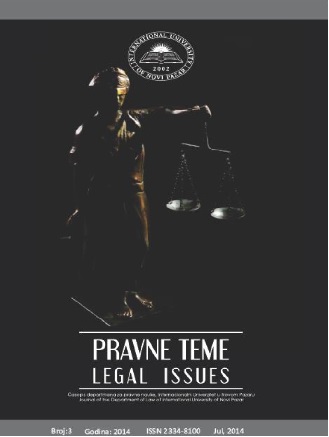

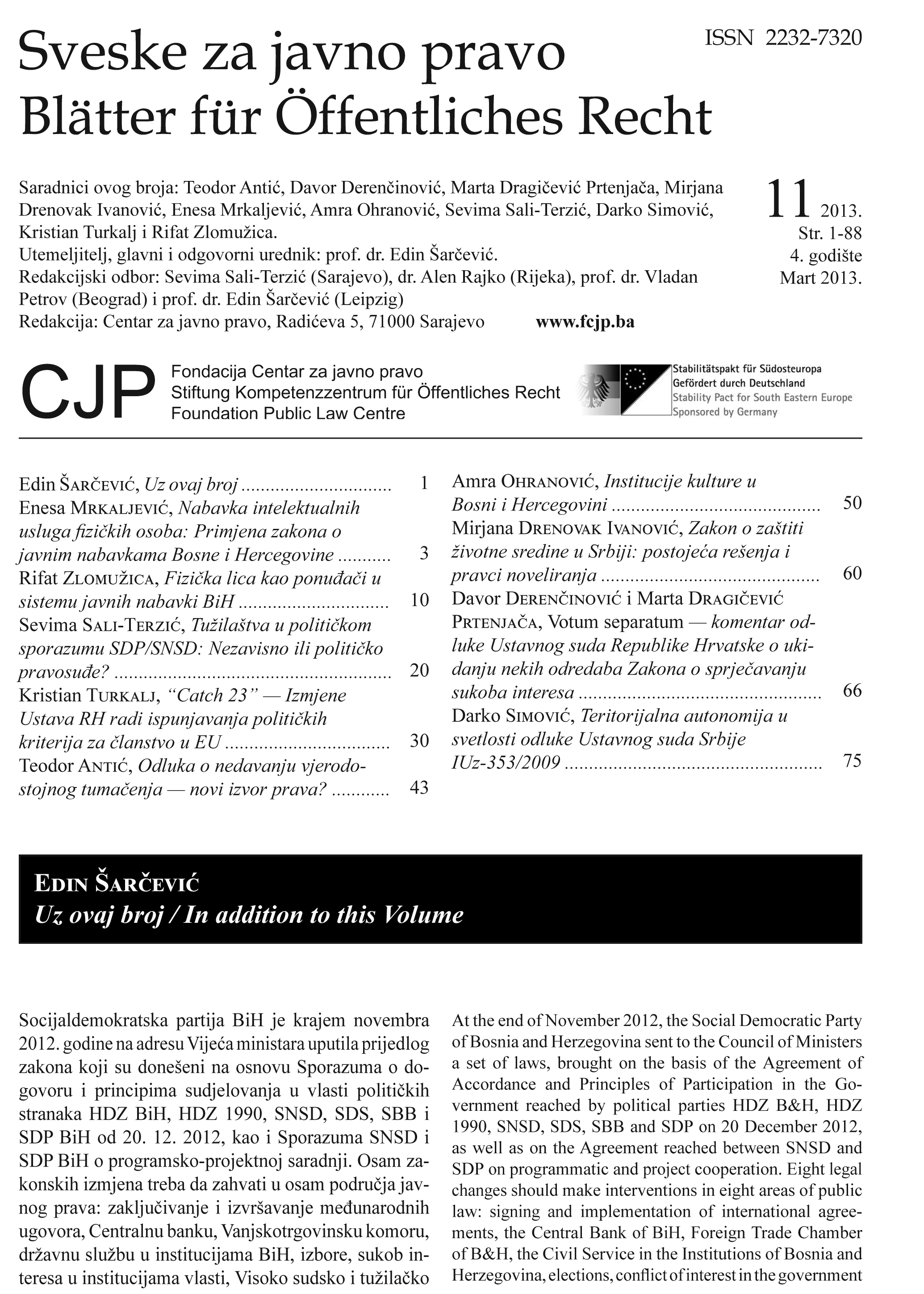
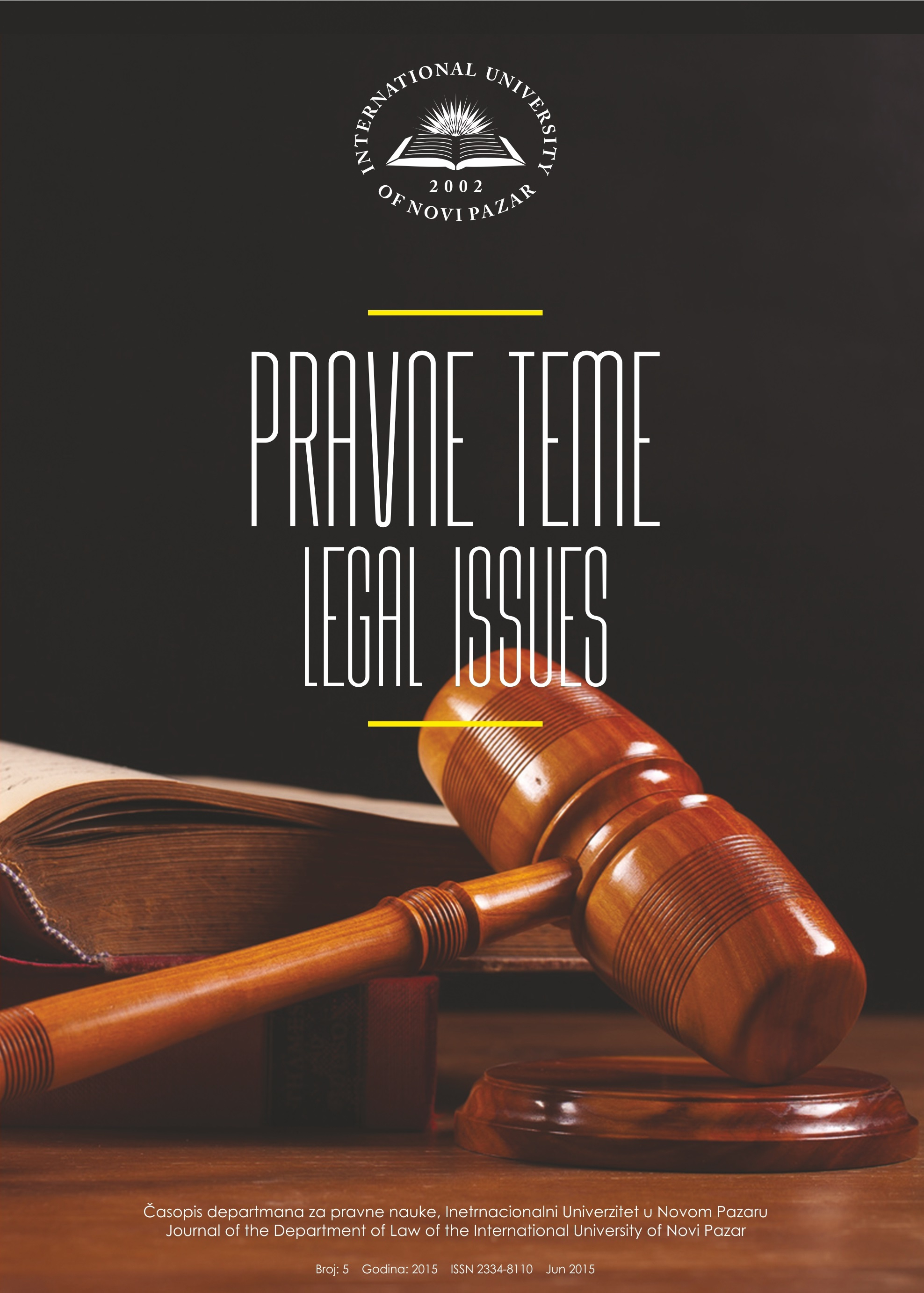
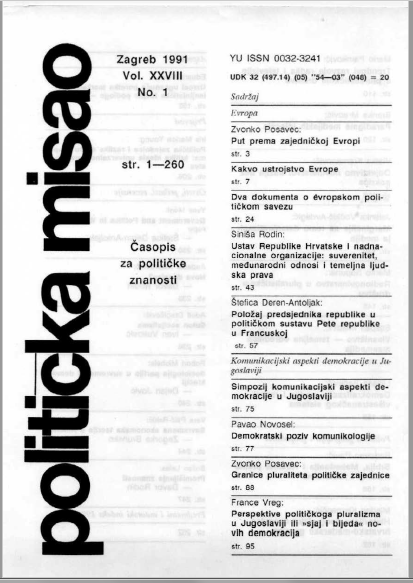
![Pomorsko pravo za jahte i brodice [= Maritime law for yachts and boats] (authors B. Milosevic Pujo, R. Petrinovic) (Split, 2008) : [book review]](/api/image/getissuecoverimage?id=picture_2009_45464.jpg)
